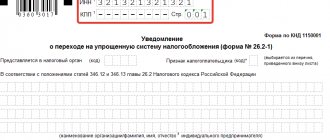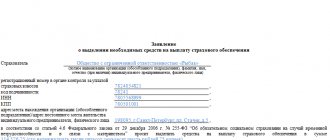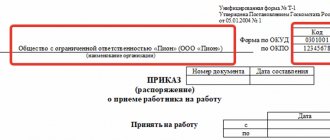An application to switch to remote work is an employee’s request to the employer with a proposal to transfer, permanently or temporarily, to another work format due to certain circumstances.
Labor legislation allows transferring an employee to remote work in two ways: at the initiative of the employee and at the initiative of the employer. The chosen method will determine the list of mandatory procedures.
To register a transfer to remote work at the employee’s initiative, you will have to receive an application for remote work from him. A transfer at the initiative of the employer is possible only for reasons related to changes in the organizational or technological conditions of work. And the working citizen is notified about this in advance, at least 2 months in advance.
How to apply for a transfer to remote work
Many employers would transfer their employees to remote work, but do not always understand how to formalize and implement this technically. For example, many have not even heard about the ability to connect from home to a work computer using programs like TeamViewer.
What also complicates the situation is that current labor law standards do not yet allow clear conclusions to be drawn regarding the legitimate procedure for transferring to remote work. The Labor Code contains norms regulating certain issues of labor relations in the event of emergency circumstances that interfere with normal work. But there is no indication of the possibility of combining work under the main contract with remote work.
In addition, no category of workers has priority for transfer to remote work - neither pregnant women, nor those with many children, nor single parents. Everyone turned out to be equal before the coronavirus.
How to formalize the transition to remote work is not yet regulated . We suggest formatting it as follows:
- Prepare an order that the employer allows employees to work from home.
- Prepare and sign additional agreements with employees on the transition to remote work.
In addition The agreement must specify all the key points of the work. Please remember that all telecommuters must perform their job duties. Also, when working remotely, internal labor regulations continue to apply, according to which (unless otherwise established by the employment contract) the working day begins at a certain time (for example, 9:00) and ends at a certain time (for example, at 18:00).
Methods and conditions of transition
There are two ways to switch to a remote work format:
- by concluding an additional agreement to the employment contract;
- by arranging a temporary transfer of an employee for a period of no more than a month.
Conclusion of an additional agreement
The conclusion of an additional agreement to an existing employment contract, which specifies changes in working conditions, is provided for in Article 72 of the Labor Code of the Russian Federation.
To transfer an employee to remote work, 2 conditions must be met:
- existence of a written employment contract concluded between the parties;
- concluding a written agreement providing for a different format of work.
In this case, the initiator of the transition can be either the employee who contacts the employer with a corresponding application, in which he gives valid reasons requiring a revision of the work format, or the employer.
The additional agreement should include the following information:
- a new format for performing labor duties (remote work), deadlines for such execution;
- work and rest schedule;
- the amount of remuneration (while maintaining the same amount of work, the amount of remuneration should not change, however, the parties can agree on other conditions);
- procedure for exchanging working documents;
- the procedure for providing employees with the funds necessary to continue working;
- the amount of compensation to an employee for expenses for using personal funds for work (compensation for expenses for electricity, Internet, personal office equipment, etc.);
- the procedure for providing subordinates with safe conditions and labor protection;
- rules and forms of employee control when performing work remotely.
Important! The additional agreement should indicate that the transition to a new work format was caused by the coronavirus pandemic in order to emphasize the temporary nature of the transfer.
We do not recommend completing the documents yourself. Save time - contact our lawyers by phone:
8 (800) 350-29-87
Registration of a temporary transfer for a period of up to one month
Article 72.2 of the Labor Code of the Russian Federation allows the employer, without the consent of the employee, to temporarily transfer him for a period of up to 1 month to a job that is not stipulated by his employment contract.
In this case, it is important to keep in mind that:
- such a transfer is permitted in the event of epidemics that threaten the life and normal conditions of existence of the population;
- the employee is transferred to another job with the same employer, but this work must be aimed at preventing the epidemic or eliminating its consequences.
This option is questionable for a number of reasons:
- Article 72.2 of the Labor Code of the Russian Federation allows you to transfer an employee to another job for a period of no more than 1 month, while it is currently not possible to determine the end of the pandemic;
- the work itself must be related to preventing a pandemic or eliminating its consequences.
What do we put on the report card?
From March 30, 2021, a transfer can be completed electronically , and documents can be signed on paper later – after restrictions are lifted. This is enshrined in Art. 72 of the Labor Code of the Russian Federation, and also explained in the letter of the Ministry of Labor dated March 27, 2020 No. 14-4/10/P-2741 and in the clarifications of the Ministry of Labor posted on the website https://rosmintrud.ru.
Keep timesheets for employees transferred to remote work as usual . That is, days when the employee works remotely (at home, etc.), o or code “ 01 ”. If you use your own designations, then use them.
What to do if rights are violated
In case of violation of the employee’s rights, expressed in refusal to transfer, offer of leave at one’s own expense, or non-payment of wages, it is necessary to submit an application to the State Labor Inspectorate of your region.
also opened a portal for electronic complaints about violations of workers’ labor rights . On the website onlineinspection.rf/covid19, select the “Report a problem” section and the appropriate category, then leave your message, explaining the situation in as much detail as possible.
You can also read frequently asked questions and answers or get advice (within 3 business days) here.
Application for transfer to remote work
There is no official application form for transfer to remote work. Workers write it arbitrarily. In addition, the Labor Code of the Russian Federation does not oblige you to write such a statement. However, this document will help to understand who is ready and agrees to work remotely and who is not. Yes, there will be workers who want to work in the office, because various everyday problems await them at home.
From our website you can then download 2021 application forms for remote (remote) work for free:
STATEMENT ABOUT THE TRANSITION TO REMOTE WORK
If the employee wrote such a statement and thereby agreed to switch to remote work, then you do not reduce his salary. no need to make an entry in the work book .
For remote workers, the volume of work and schedule do not change. In addition, a remote workplace is not considered the opening of a separate division, so there is no need . This is clearly stated in the letter of the Ministry of Finance dated December 1, 2014 No. 03-04-06/61300.
Contributions to the Pension Fund and personal income tax from payments to an employee working remotely are paid as usual .
After the employee submits an application for remote work, prepare a corresponding additional agreement to the employment contract.
ADDITIONAL AGREEMENT ON TRANSITION (TRANSFER) TO REMOTE WORK
Transfer to remote work according to the Labor Code
The Labor Code of the Russian Federation allows you to work either on the employer’s premises or remotely. As experts from the Ministry of Labor note, a change in the order of interaction between the parties to an employment contract is not recognized as a transfer.
Therefore, the procedure under Art. 72 Labor Code of the Russian Federation:
- an agreement between the parties is reached;
- the agreement is made in writing.
With the current level of technology development, accountants, economists, personnel officers, marketers, administrators and other categories - mainly office employees - will be able to work remotely. The main thing for the employer is to provide them with access to work applications, and e-mail and instant messengers will allow them to exchange documents.
We talk about how to take into account the costs of protecting employees from coronavirus here.
Results
With the introduction of a high-alert regime in many regions of the Russian Federation, many employers are transferring their employees to remote work. The transition to remote work does not oblige the employee to write a separate statement about this. But it may be useful to ask about this to understand the team’s readiness for the transition.
There are no officially established application forms for remote work (sample) and additional agreement on remote work. When preparing them, one should proceed from business and personnel practices.
Read also
13.04.2020
How to compose correctly
The employee draws up the application independently, but the employer can provide the form. The unified form has not been approved; the employee’s appeal is written in a free, arbitrary form. But there must be details that allow you to determine the addressee, applicant and the request for transfer to remote mode.
Therefore, the form should indicate:
- name of the organization, details of the boss, manager, including the title of the position;
- information about the employee who applied, indicating the position;
- Title of the document;
- a request to use remote mode, justifying it with specific circumstances;
- nature of the transfer: temporary or permanent;
- period of application of the labor activity regime;
- date and signature.
Recommendations for employers in connection with coronavirus infection
The Ministry of Labor of the Russian Federation clearly believes that the best option for organizing the work process in the context of the spread of coronavirus is remote work (remotely at home without visiting the workplace).
If the organization has the opportunity to organize remote work, this must be done, since the timing of the end of the COVID-19 epidemic is not known.
Performing duties remotely will allow employers to maintain their business and employees not to lose their jobs and wages.
In connection with the above, recommendations for employers on ensuring the transfer of personnel to a remote work mode are as follows:
- Step 1. Make lists of workers who can be transferred to remote work during the coronavirus threat.
- Step 2. Make sure that employees can provide conditions for working at home (there are computers, the Internet, communications equipment); for this purpose, an urgent survey can be conducted among the staff. Someone may have to provide the necessary equipment for work (computers, laptops, printers, etc.).
- Step 3. Consider the procedure for organizing work remotely, methods of communication between the organization and remote personnel.
- Step 4. Provide remote personnel access to work computers to perform job duties.
- Step 5. Consider ways to monitor employees’ performance of the required volume of responsibilities during the spread of COVID-19.
- Step 6. Provide staff with the necessary compensation for the costs of communications for work purposes (payment for Internet, telephone, etc.).
- Step 7. Issue an order for a temporary transfer to work remotely for the period of coronavirus.
- Step 8. Obtain written consent to the transfer from each worker (in the form of an application or in the form of a signature on the introductory sheet to the order).
- Step 9. Draw up additional agreements to the employment contract for each employee transferred to work from home.
- Step 10. Sign the additional agreement - there must be two signatures: the manager and the employee.
- Step 11. Carry out the necessary issuance of work assignments, checking them and monitoring the performance of job duties.
- Step 12 . Ensure timely payment of labor (the procedure for calculating wages, its size and payment terms throughout the enterprise should not change due to the transition to remote working mode).
First steps to transfer employees to remote work
In order to quickly resolve all formalities and technical issues, it is important to immediately decide:
- Which employees will be transferred to remote work - individual employees, one or more departments, or the entire office.
- According to what schedule, in what mode the work will be carried out (working hours, rest hours, weekends).
- What technical tools, equipment and software will be used by remote employees. Is it possible to use personal devices and software or is it necessary to provide workers with the necessary software and hardware base. It's not just about functionality and performance, but also about information security. The latter is especially important when it is necessary to avoid information leaks and prevent unauthorized access to corporate information databases, networks and systems.
- Do remote employees need to issue an enhanced qualified electronic signature certificate and in what order will this task be solved?
- Who exactly will be responsible for technical support and information security, as well as for the legal registration of the transfer to remote work.
The main burden will fall on the IT service and HR department. Therefore, it is advisable to immediately involve them in preparing an action plan. It is highly undesirable to use personal technical resources of employees - home computers and programs installed on them. Ideally, you need to think about organizing a virtual work office with the required functionality and a high level of information security.
Work of remote employees
Remote work is the performance of a labor function specified in an employment contract outside the location of the employer and outside the stationary workplace. Employees who have entered into an employment contract for remote work are considered telecommuters.
Remote workers are subject to the Labor Code of the Russian Federation and other acts containing labor law standards, and they are equally guaranteed the same rights as all other workers. In particular, they are guaranteed the right to weekly and daily rest, to receive full wages without any restrictions, to annual paid leave, to receive temporary disability benefits, to incentive/bonus payments, and so on.
The only difference between remote workers and regular workers is that they work outside of their permanent workplace. But this does not exclude contacts with the employer and control on his part. In the case of remote work, direct, personal contacts are simply replaced by Internet correspondence, telephone conversations and the exchange of electronic documents.
Despite a number of similarities, telecommuters who work remotely must be distinguished from homeworkers.
Homeworkers are considered to be persons who have entered into an employment contract to perform work at home using materials and using tools and mechanisms provided by the employer or purchased by the homeworker at his own expense (Article 310 of the Labor Code of the Russian Federation).
Based on this definition, we can say that homeworkers always produce some kind of product, while the work of remote workers is not limited to the production of products. Remote employees can provide services and perform work that does not result in the final product.
Another difference appears in the nature of the work performed. A homeworker can perform work with the participation of family members. In this case, labor relations do not arise between members of the homeworker’s family and the employer, and the employer is not interested in whose actions exactly the final result was obtained. A remote worker always performs the assigned work/task in person, which he regularly reports to the employer online (via the Internet or telephone).
How to monitor the work of remote employees
Report cards
The working hours of remote employees are kept in the same way as those present in the office. In ABiUS, heads of structural divisions fill out timesheets daily and submit them monthly to a human resources specialist for drawing up a consolidated timesheet. The timesheet shows a standard 8-hour working day.
You can monitor the work of a remote employee throughout the day by installing the Radmin or Hubstaff program on his computer. They allow you to monitor the screen of an employee’s personal computer or laptop in real time.
Meetings
To prevent remote workers from becoming complacent or feeling abandoned, it is important to hold regular conferences, calls, and online meetings. How to organize meetings for remote employees? There are a variety of technical solutions for this: internal chats and organizational services, Skype, Zoom, Telegram, even WhatsApp will do.
Reports
It is important to think about organizing current employee reports on completed tasks. These could be mini-reports that an employee sends at the end of the day to the head of a structural unit, short planning meetings via Skype, Zoom or other video conferencing programs, or filling out a general report form in the cloud, for example, in Google Docs.
Categories
WHAT EMPLOYEES CAN WORK REMOTELY
The introduction of remote work is regulated by Ch. 49.1 of the Labor Code of the Russian Federation.
Article 312.1 of the Labor Code of the Russian Federation defines the signs of remote work:
• employees work outside the employer's location;
• employees work outside of stationary workplaces under the control of the employer;
• workers use the Internet to perform work functions and interact with the employer.
Of course, these are primarily knowledge workers: programmers, translators, lawyers, consultants, web designers, interior designers, planners, etc. In addition, judicial practice confirms that sales representatives with a traveling nature of work can be classified as remote workers , if they work in an area remote from the main office (Appeal ruling of the Yaroslavl Regional Court dated 01/21/2019 in case No. 33-253/2019; Appeal ruling of the Kemerovo Regional Court dated 05/16/2017 in case No. 33-5236).
HOW TO INSTALL REMOTE WORK FOR EMPLOYEES
From the point of view of labor law, the introduction of remote work to employees will not constitute a transfer within the meaning of Art. 72.1 Labor Code of the Russian Federation. The introduction of remote work for the same position in the same department will be considered as a change in the terms of the employment contract (Part 1 of Article 312.1 of the Labor Code of the Russian Federation; Appeal ruling of the Moscow City Court dated April 4, 2018 No. 33-8693/2018). Therefore, if employees who previously worked in the office agree to switch to remote work, in accordance with Art. 72 of the Labor Code of the Russian Federation, it is necessary to draw up appropriate additional agreements with them to employment contracts.
If employees do not agree with such changes, then, if there are appropriate grounds, it is possible to apply the procedure provided for in Art. 74 Labor Code of the Russian Federation.
In order for changes to an employment contract without the employee’s consent to be legal, it is necessary:
a) actual change in organizational or technological working conditions;
b) compliance with the procedure for amending the employment contract.
PROCEDURE FOR CHANGING THE CONDITIONS OF AN EMPLOYMENT CONTRACT WITHOUT THE CONSENT OF THE EMPLOYEE
Let us recall the procedure for changing the terms of an employment contract without the employee’s consent:
• make sure that there are changes in organizational or technological working conditions and document them, for example, issue an order on such changes (part 1 p. 74 of the Labor Code of the Russian Federation; clause 21 of the Resolution of the Plenum of the Supreme Court of the Russian Federation dated March 17, 2004 No. 2 “On the application by courts Russian Federation Labor Code of the Russian Federation" (as amended on November 24, 2015), as well as Appeal rulings of the Moscow City Court dated May 24, 2019 in case No. 33-22825/2019; St. Petersburg City Court dated December 6, 2018 in case No. 33-724/ 2018);
• notify the employee about changes in the terms of the employment contract and their reasons in writing no later than 2 months before their introduction (Part 2 of Article 74 of the Labor Code of the Russian Federation; Appeal ruling of the Court of the Khanty-Mansiysk Autonomous Okrug - Ugra dated January 22, 2019 in case No. 33-146/2019);
• offer in writing another job if the employee refuses the changes (Part 3 of Article 74 of the Labor Code of the Russian Federation; Determination of the Judicial Collegium for Civil Cases of the Supreme Court of the Russian Federation dated February 25, 2019 No. 44-KG18-33);
• if there are no suitable vacancies or the employee refuses the offered job, dismiss the employee under clause 7, part 1, art. 77 of the Labor Code of the Russian Federation, paying severance pay in the amount of two weeks’ average earnings upon dismissal (Article 178 of the Labor Code of the Russian Federation).
WHAT CHANGES TO MAKE IN THE EMPLOYMENT CONTRACT
In order for an employee’s employment contract to become an employment contract specifically for remote work, it is necessary to make a number of changes, some of which are mandatory, while others depend on the agreements of the parties to the employment contract. Let's look at these changes.
We introduce a condition on remote work
First of all, let’s add a clause to the employment contract stating that the employee is now working remotely, since the need for such a clause is directly indicated by Art. 312.1 of the Labor Code of the Russian Federation and judicial practice[1]:
.
We specify the place where the employee performs the work
The concept of remote work, formulated in Art. 312.1 of the Labor Code of the Russian Federation, contains an indication that the employee must work outside the location of the employer. In our opinion, this must be emphasized in the employment contract.
According to the clarifications of the Ministry of Finance of Russia in letter dated August 1, 2013 No. 03-03-06/1/30978, the place of work of a remote worker is his location. Therefore, you can indicate the employee’s place of residence (name of the locality) as the place of work. The Labor Code does not tie a remote worker to a specific place, however, in some cases, for example, to determine the need to pay a regional coefficient and a percentage bonus if the employee works in areas where such payments are required, for business trips, etc. it makes sense to do this:
We make changes regarding working hours (if necessary)
Article 312.4 of the Labor Code of the Russian Federation establishes, unless otherwise provided by the employment contract on remote work, that the working hours and rest periods of a remote worker are established by him at his own discretion.
Thus, if an employer wants a remote worker to work at certain times, this must be stipulated in the employment contract. In this case, you can specify the operating mode with the detail that the employer needs:
• working days and working hours, for example:
• only working days, for example:
• those hours during which the employee must work, and he has the right to determine other working hours at his own discretion.
We are making changes regarding employee labor protection
According to Art. 3 of Federal Law No. 426-FZ dated December 28, 2013 “On special assessment of working conditions” (as amended on December 27, 2018), a special assessment for jobs of remote workers is not carried out, therefore the employer will not be able to reflect the working conditions at the workplace in the employment contract, although according to Art. 57 of the Labor Code of the Russian Federation, such an indication is mandatory. Perhaps in the future judicial practice will resolve this contradiction. Currently, in our opinion, it is necessary to include a clause in the employment contract stating that due to the failure to carry out a special assessment, working conditions are not determined.
Other responsibilities of the employer regarding labor protection do not apply to remote workers, with the exception of a very limited number of responsibilities specified in Art. 312.3 Labor Code of the Russian Federation:
• accident investigation;
• execution of government regulations;
• compulsory insurance against accidents and occupational diseases;
• familiarizing remote workers with labor safety requirements when working with equipment and tools recommended or provided by the employer.
Accordingly, the clause on working conditions in the workplace should be excluded from the employment contract:
We are making changes regarding communication methods
Another important point when transferring an employee to remote work is the methods of communication: now communication between the employee and the employer will be structured differently, and this must be fixed in the employment contract[2].
The employee interacts with the organization via email, by exchanging electronic messages and possibly electronic documents. An employee can submit the results of his work (reports, articles, consultations, projects, etc.) and more by e-mail. Also, in electronic form, if there is an enhanced qualified electronic signature (hereinafter referred to as the ECES), the employee has the right to send all necessary documents, including documents required for employment and various applications. The Labor Code allows you to send personnel (orders, notifications, requirements, etc.) and other documents of the employer (for example, sheets of familiarization with local regulations) to the employee using electronic document exchange.
Thus, the employee and the employer can exchange electronic documents on almost any issue.
Cases in which it is necessary to provide documents in paper form, sending them by registered mail with notification, are provided for in Art. 312.1, 312.2, 312.5 Labor Code of the Russian Federation.
• To pay for sick leave and assign benefits for disability, pregnancy and childbirth and others related to maternity, the employee sends the employer originals of sick leave and other documents required by law.
• If the employment contract was concluded by exchanging electronic documents, then no later than three calendar days the employer is obliged to send the employee a copy of the employment contract on paper.
• If the dismissal of an employee was executed in the form of an electronic document, then on the day of termination of the employment contract the employer is obliged to send the employee a copy of the dismissal order on paper.
• The parties to the employment contract can agree that no entry will be made in the work book. If there is no such agreement, then the employee provides the work book in person or sends it by mail.
• When an employee submits an application for the issuance of duly certified copies of work-related documents, the employer, no later than three working days from the date of filing the said application, is obliged to send these copies to the remote worker (unless the application states that they must be sent in the form of an electronic document) .
• At the request of the employer, the job candidate is obliged to send him by registered mail with notification notarized copies of documents required to be presented for work[3] on paper.
In order for the exchange of electronic documents between a remote worker and the employer to be legal, the parties must use UKEP.
To use an electronic signature, you must obtain a qualified electronic signature verification key certificate[4]. A qualified certificate is issued by an accredited certification center. The list of such centers can be found on the website of the Ministry of Telecom and Mass Communications.
At the same time, labor legislation does not provide for the employer’s obligation to pay for obtaining an employee’s electronic signature key certificate, therefore, we believe that this issue is resolved by agreement of the parties to the employment contract.
If the parties do not use an electronic signature, then after exchanging electronic documents it is also necessary to send the originals of all documents by mail.
Thus, the employment contract must:
1) note the use of the Internet;
2) determine whether the parties use an electronic signature or agree to exchange original documents by mail.
For example, you can note in an employment contract:
“Interaction between the Employee and the Employer is carried out by exchanging electronic documents via the Internet using an enhanced qualified electronic signature.”
We make changes regarding the provision of equipment (if necessary)
If the employer provides the employee with equipment (for example, a computer, telephone, car, software, etc.), then the procedure for use and the terms of provision of property and software must also be reflected in the employment contract[5]. In this case, we believe that you can refer to LNA if the procedure for providing property for remote workers does not differ from others. If there are differences, then it is better to indicate the procedure for providing the employer’s property in the employment contract:
“The employee is provided with a cell phone of the brand ..., which the employee purchases independently using the employer’s funds transferred to the employee’s salary card.”
We are making changes regarding compensation for the use of personal property and reimbursement of expenses (if necessary)
If the employer does not provide the remote worker with equipment, but recommends the use of this or that equipment or the need to use such equipment arises from the nature of the work, then the employer will be obliged to compensate the employee for the use of personal property to perform job duties in accordance with Art. 188 Labor Code of the Russian Federation. Furthermore, in accordance with Art. 168 and (or) 168.1 of the Labor Code of the Russian Federation, the employer will be obliged to reimburse the employee for expenses associated with business trips or business trips during the traveling nature of the work.
If the procedure for reimbursement of expenses and provision of compensation differs from reimbursement of expenses for other employees, this must be indicated in the employment contract. However, if the employer does not provide for reimbursement of these expenses, then the employee will in any case be subject to the provisions of labor legislation. And if such expenses arise, the employee will be able to recover them from the employer[6].
Adding a condition for employee control
In addition, when introducing remote work for an employee, it is worth considering exactly how the employer will control him.
To prevent such situations from arising, we recommend that employment contracts include the following provisions that will help control remote workers:
• the employee’s obligation to call on the phone at a certain time or to be in touch at a certain time on a specified telephone number;
• receive letters at the address specified in the employment contract;
• send reports, including photo reports, on the specified dates and times by email;
• communicate via Skype and provide oral reports;
• report to the office on the specified dates and times, including going on a business trip;
• keep a photograph of working hours;
• provide documents confirming expenses in accordance with the established procedure.
For example, in an employment contract you can note:
We make changes regarding the dismissal of an employee (if necessary)
According to Art. 312.5 of the Labor Code of the Russian Federation, termination of an employment contract for remote work at the initiative of the employer is carried out on the grounds provided for in the employment contract.
In this regard, the question arises whether the employer has the right to indicate any reason as a basis for dismissing a remote worker. For example, can an employer fire an employee based on the following reasons:
1) low performance (failure to fulfill the plan);
2) repeated failure to provide or violation of the reporting deadline;
3) changes in the company’s development strategy;
4) hiring an employee for a similar position, whose workplace will be the employer’s office.
The answer to this question is ambiguous. For a number of the above reasons, the position of representatives of regulatory authorities is that it is impossible to dismiss an employee based on them, since there is discrimination against the employee (grounds 3 and 4). It is obvious that there is a certain logic in these arguments, and when formulating such grounds it is necessary to be guided by labor legislation.
In particular, Art. 2 of the Labor Code of the Russian Federation establishes that one of the basic principles of legal regulation of labor relations is the prohibition of discrimination in the sphere of labor. By virtue of Art. 3 of the Labor Code of the Russian Federation, it is not permitted to restrict labor rights and freedoms depending on circumstances not related to the employee’s business qualities. Therefore, the grounds for dismissing an employee must be related to his failure to fulfill official duties, failure to submit reports, failure to communicate, damage to the employer’s property, etc.
As for the first two grounds, judicial practice on this matter is ambiguous.
Thus, the conclusion suggests itself that the court would recognize dismissal on such grounds as legal if it were expressly stated in the employment contract.
Therefore, it is possible to dismiss an employee for additional reasons if a number of conditions are met :
1) these grounds must be clearly stated in the employment contract;
2) the reason for dismissal must be related to the employee’s business qualities; discrimination is unacceptable;
3) confirmation of the validity of dismissal on such grounds is necessary.
Introduction of the considered article. 312.5 of the Labor Code of the Russian Federation is due to the specifics of labor relations with remote workers. The legislator has given employers the right to provide special grounds for dismissal for such employees, based on the characteristics of the business and the work performed by the employees. If this mechanism is used correctly and the necessary conditions are met, the employer’s opportunities are very wide.
[1] Appeal ruling of the St. Petersburg City Court dated March 29, 2016 No. 33-5216/2016.
[2] Article 312.1 of the Labor Code of the Russian Federation.
[3] Article 65 of the Labor Code of the Russian Federation.
[4] Federal Law No. 63-FZ dated 04/06/2011 “On Electronic Signatures” (as amended on 06/23/2016; hereinafter referred to as Federal Law No. 63-FZ).
[5] Article 312.3 of the Labor Code of the Russian Federation.
[6] Decision of the Industrial District Court of Smolensk dated December 24, 2013 in case No. 2-3161/2013.
How to pay workers during COVID-19
Remuneration is prescribed in the employment contract - the amount of wages (salary, tariff, price), bonus part and other components of the salary are indicated.
During the period of remote work under coronavirus conditions, it is recommended to pay employees on the same terms as were in force before this transition. This provision must be reflected in the additional transition agreement.
Wages must be calculated in proportion to the time worked in a remote work environment.
The timing of salary payments remains the same - twice a month with an interval of 15 days, which must be enshrined in the local acts of the organization.
It is recommended to make payments to staff by non-cash transfer to employee cards.










